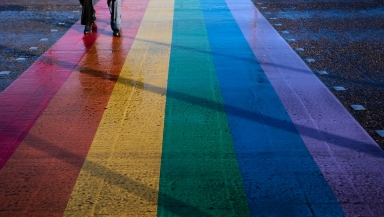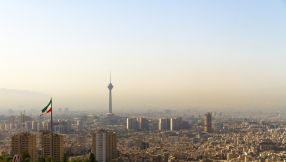
A Christian organisation has written to Prime Minister Rishi Sunak warning him against introducing a ban on so-called 'conversion therapy'.
The letter coincided with the one-year anniversary of a ban in the Australian state of Victoria which criminalises pastoral advice and prayer that upholds the Bible's teaching on sexual ethics.
The Victoria ban criminalises change or 'suppression' practices "undertaken with the intention to change or induce that person to change or suppress their sexual orientation or gender identity".
Under the wording of the ban, prayers that are "likely to cause harm" are those that "ask for healing", "ask for a person to change", "ask for a person to not act on their attractions", "talk about a person's brokenness or need to repent", or "ask for long-term celibacy".
Prayers deemed acceptable are those that ask "for guidance", "acknowledge their God loves the individual", and "that are supporting and reassuring that the person is created in their God's image and perfect the way they are".
The guidance states, "This law is not about stopping people from practicing or enjoying their faith, it is about preventing harm – and these practices are harmful.
"However, the definition of change or suppression practices could capture some religious activities, such as pastoral conversations, in certain circumstances. For example, it would likely be a change or suppression practice if a person goes to a religious leader seeking advice on their feelings of same-sex attraction, and the religious leader tells them they are broken and should live a celibate life for the purpose of changing or suppressing their same-sex attraction.
"This conduct would only attract criminal penalties where injury resulting from the practice is able to be proven, and where there is proof of criminal negligence."
The UK government has promised to ban so-called conversion therapy but legislation has been delayed. Supporters are pushing for the UK to model its legislation on the Victoria ban.
The Christian Institute has warned that if the UK copies the Victoria ban, it could result in "one of the most religiously repressive laws in centuries".
It fears that even the Lord's Prayer could be considered a criminal conversion practice if it is said with an LGBT person because it asks for forgiveness of sins and for people not to be led into temptation.
The letter from The Christian Institute to Mr Sunak warns, "It is almost certainly impossible to placate the demands of pro-ban activists whilst also protecting the freedom of religious people to live out their faith, and the freedom of parents to protect their children from radical gender ideology in their own homes.
"Any legislation on 'conversion therapy' will likely see ordinary people facing investigation over claims that their innocent conversations were really malign attempts to 'change or suppress' LGBT people.
"Any protections in the legislation will be attacked by activists and may be stripped out by their allies in Parliament."
Simon Calvert, a Deputy Director at The Christian Institute, said there were "dangers" in copying the Australian ban in the UK.
"Religious believers could undoubtedly experience the worst effects of this sort of law," he said.
"As we have seen in Victoria, it won't take long for state bodies to feel they have the right to dictate to churches what they can and cannot teach and precisely how to pray.
"Those who refuse to ditch the teaching of the Bible could soon find themselves at the mercy of the criminal justice system."
He continued, "A whole plethora of Christian creeds and teachings would be found wanting when compared to the guidance.
"Because right at the heart of the Christian Gospel is a message that all people are sinners who need to repent and be forgiven, and that we all need to seek God's help in avoiding all sorts of temptation.
"If what the official guidance says was upheld in the law courts, whole swathes of scripture could not be read with LGBT people and every church would have to rethink their hymnbooks and prayers."













